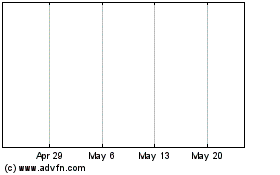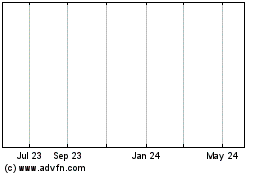UPDATE:Debt-Ceiling A Factor When Capital One Accelerated Plans
July 27 2011 - 4:33PM
Dow Jones News
Capital One Financial Corp. (COF) said it accelerated stock and
bond issues and an earnings report to avoid potential turbulence
involving the U.S. government debt ceiling.
In an interview with Dow Jones Newswires, Capital One's chief
financial officer said the bank wanted to ensure it didn't need the
capital markets around the time the U.S. debt would hit its legal
ceiling, which is expected to happen August 2.
Capital One, a McLean, Va., bank and the nation's ninth-largest
bank by assets, disclosed last month that it would acquire the U.S.
online-banking business of ING Groep NV (ING, INGA.AE) for $9
billion in cash and stock. To raise the cash in the capital market,
Capital One needed to report earnings.
The simmering debate between the White House and Congress about
the debt ceiling, as well as the European Union's struggle to
contain its sovereign-debt problems were among the reasons why "we
accelerated our earnings release so we could issue the equity we
needed for the ING Direct transactions followed by $3 billion of
debt," Chief Financial Officer Gary Perlin said Monday.
"Had we waited until our normal earnings date, we would have had
to wait until [July 25] to be in the market" to raise equity and
debt, Perlin said, putting the capital raises at risk "before the
debt ceiling would have to be resolved."
Shares of Capital One were down 2.5% in late-afternoon trading,
to $47.61, on a day when bank stocks were sliding over concern
about the debt ceiling impasse and soft economic data.
Overall, big banks have said little about how they are preparing
for fallout from the debt-ceiling impasse--beyond saying they are
monitoring the situation. A spokeswoman for the Federal Reserve
said Wednesday, "We expect to be able to give additional guidance
to financial institutions when there is greater clarity from the
Congress and when Treasury outlines its specific operational
plans."
Citigroup Inc. (C) has said failure to raise the debt limits "is
one of several" scenarios "we have planned for in our exposure and
liquidity management."
Bank of America Corp. (BAC) has said it is "working through a
variety of contingency plans."
One issue lingering is how to handle government
IOUs--"individual registered warrants"--in lieu of paychecks. Banks
don't yet know how to process such IOUs, as warrants or as checks,
and it is unclear if the government could actually use such an
instrument while in default.
Market liquidity remains a concern. A default by the U.S.
government, or even a potential downgrade of U.S. Treasury notes
and bonds if rating agencies aren't assured that the White House
and Congress can agree on how to reduce the government deficit,
could cause turbulence in stock and bond markets.
Still some banks are worried that commercial customers won't be
able to issue or roll over their debt, and a decline in bond prices
could mean banks might require more collateral from their
counterparties in dealing with overnight repurchase agreements.
Some banks said they don't expect the kind of severe credit
crunch that hit the money markets after the collapse of Lehman
Brothers Holdings Inc. (LEHMQ) in 2008. "There is no panic mode,"
said one person at a large U.S. bank.
Even if U.S. Treasurys were downgraded, they would most likely
retain their benchmark status, would still be the most liquid asset
short of cash and trade in huge volume, some banks said. And banks
won't need to sell them.
U.S. banks held $1.6 trillion in Treasury and other
government-agency securities on their books as of June 30,
according to Federal Reserve data. Falling bond prices might
require those securities to be marked-to-market by the end of the
quarter--but by then the political impasse might be resolved and
the market might well have recovered, some banks said.
"I don't think anybody is thinking we have a solvency problem"
in the U.S., one banker said. "A default, if it occurs, is likely
temporary."
-By Matthias Rieker, Dow Jones Newswires; 212-416-2471;
matthias.rieker@dowjones.com
Lehman (NYSE:LEH)
Historical Stock Chart
From Jun 2024 to Jul 2024

Lehman (NYSE:LEH)
Historical Stock Chart
From Jul 2023 to Jul 2024
